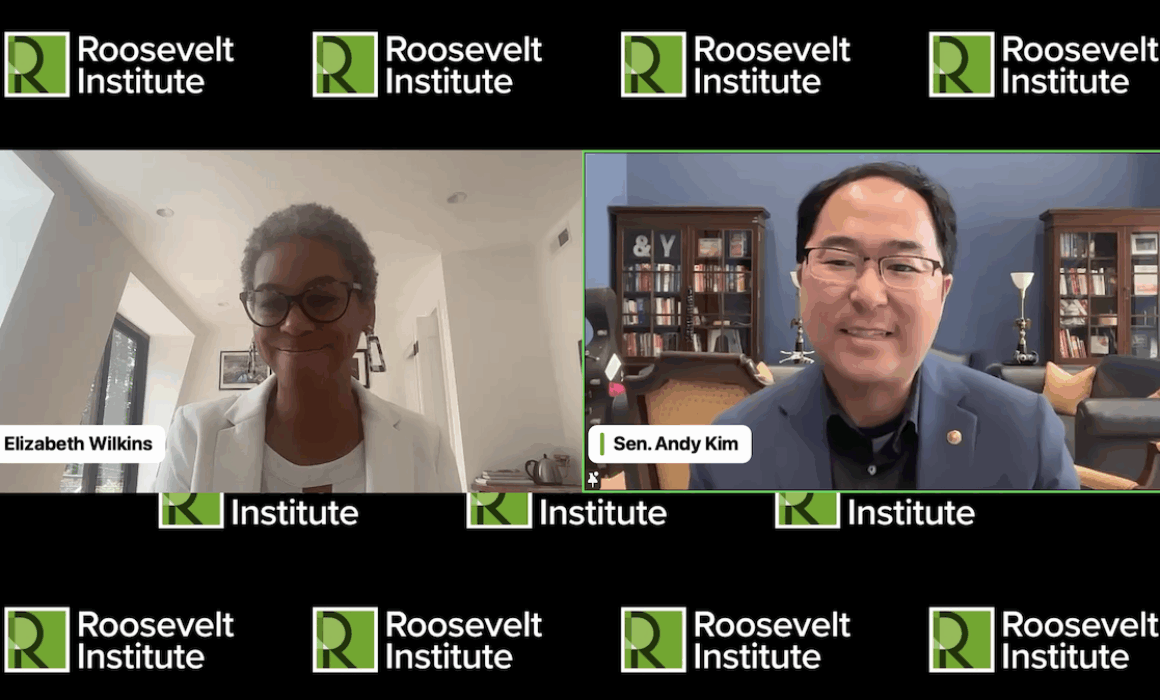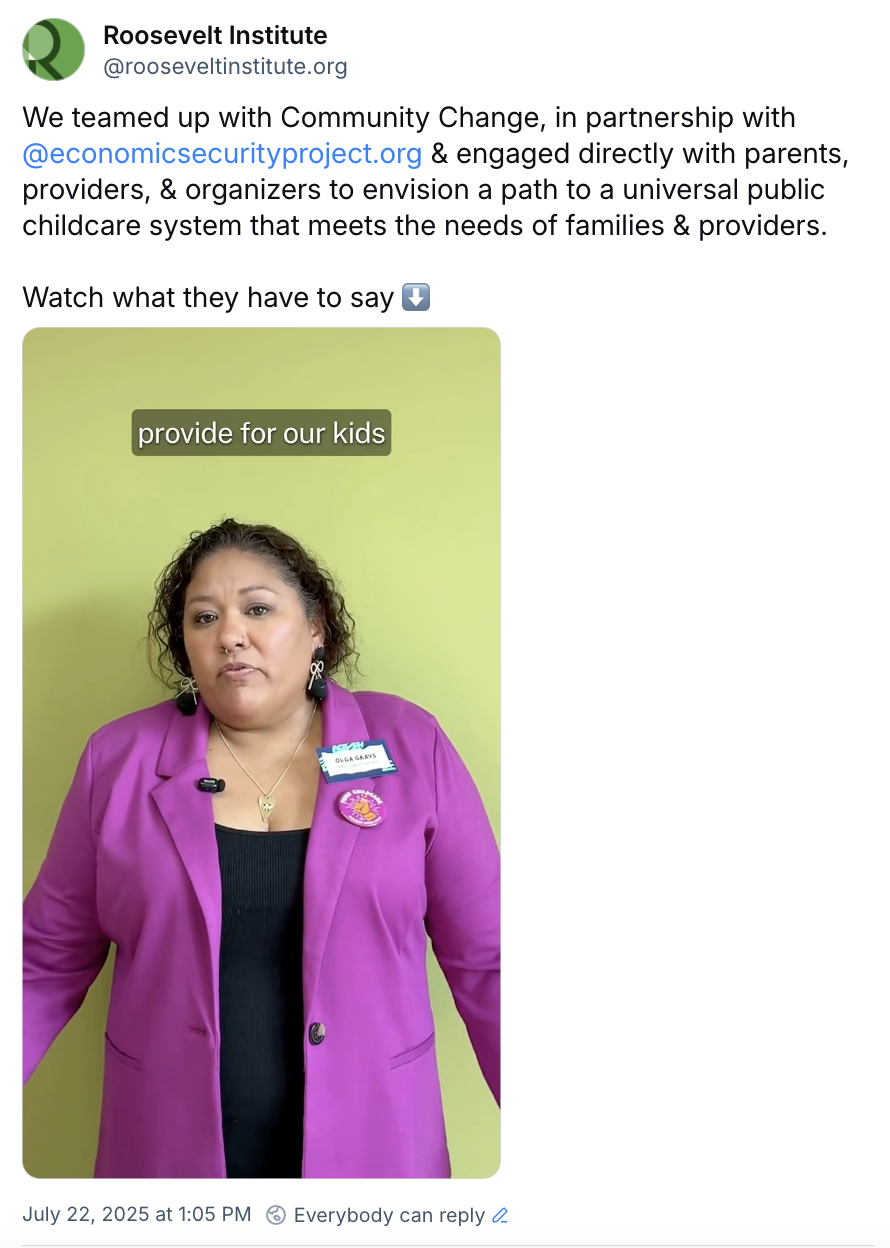What Pro-Family Policy Really Looks Like
July 25, 2025
We need a public childcare option to fix a private market failure.
The Roosevelt Rundown features our top stories of the week.

Roosevelt President and CEO Elizabeth Wilkins and Sen. Andy Kim (D-NJ) at the "From Crisis to Care: Reimagining Childcare as Public Infrastructure" webinar (Roosevelt Institute)
AI Can’t Improve Public Service Without Worker Voices
Children, parents, and care workers alike are in crisis. Children aren’t getting the individualized attention they need outside of school. Parents are scrambling to fill the gaps before kindergarten, after school, and during the summer. Care workers are overextending themselves for low pay and facing pressure from private equity. It’s a market failure, plain and simple.
The answer is universal childcare, with bold public solutions that get us there. This week, the Roosevelt Institute, in partnership with Community Change and Economic Security Project, published a landmark new report on what those solutions could look like. This report is the result of months of research and conversations with stakeholders and is the latest output of the Roosevelt Institute’s summer 2025 care package.
“The genesis for this paper and the accompanying conversations with parents, providers, and organizers came from an understanding of the inadequacy of the current fragmented system,” the report authors write. “We are far past due for a shift from framing [early childhood care and education] as a problem for the private market and limited welfare funding to solve, to considering it a universal good for all children and families.”
And on Monday, Sen. Andy Kim (D-NJ) keynoted our childcare webinar, which featured a panel of experts who walked us through their new Roosevelt papers and the different forms childcare policies can take. “The unaffordability of childcare is one of the first major points of deviation in the trajectory of families in America,” Kim said. “It sits outside of the bounds of what our society has so far deemed necessary for all and has not been accepted across our land as a good in and of itself that should be understood as a universal good.”
The public childcare proposal sits within a broader policy vision that includes:
- one year of paid parental leave
- universal early childhood care and education
- universal preschool, after school, and summer care
- higher wages and collective bargaining rights for the existing childcare workforce
Read the report: Building a Vision for Universal Public Childcare: Principles for a Childcare System That Works for Workers and Families
And check out our new Care Economy hub page, which collects all our past (and future!) reporting on care, as well as our new fact sheet “The Future of the Care Economy.”
What We’re Talking About
What We’re Reading
- On transforming government: Elizabeth Wilkins and Hannah Garden-Monheit wrote in The Hill about how to reimagine the future of democratic governance: “If we want to implement a bold policy agenda in the future—one that truly creates agency, power and opportunity for people who don’t have it—we have to start planning now to build the basic infrastructure for a government that’s much more responsive to and resonant with ordinary Americans, not the monied few.”
- On Jobs Day: Roosevelt Principal Economist Michael Madowitz broke down what to expect in next week’s data news: more movement in wage and jobs numbers, not interest rates.
- On rising health insurance costs: Roosevelt Fellow Miranda Yaver explained how Republicans are planning to let Affordable Care Act subsidies expire at the end of this year. The higher costs of insurance will likely lead many to drop coverage, which drives up health-care costs for everyone.
- “One of the things that is really critical to health insurance is being able to essentially spread the risk of insuring people so that we can essentially bring younger and healthier people into the insured population,” Yaver told Business Insider. Higher prices are “insurance companies correcting for the fact that the people who are going to be enrolled in their plans will probably not be as healthy.”
